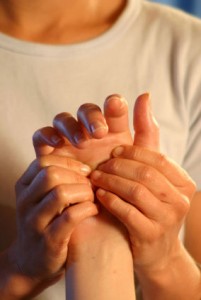
More evidence that low-calorie sweeteners are bad for your health
Studies show that artificial sweeteners can raise the risk of hypertension, metabolic syndrome, type 2 diabetes and heart disease, including stroke.

Natural Health News — Shiatsu massage may help those suffering from chronic pain, prepare for sleep and stay asleep for longer periods, a new study has shown.
Researchers at the University of Alberta have been studying the traditional Japanese massage practice as a means of breaking a familiar and vicious cycle whereby pain keeps a person awake, and loss of sleep increases sensitivity to pain.
The research team’s findings were published in the Journal of Integrative Medicine.
Finding results that work
The pilot study was an attempt to explore low-cost, unintimidating alternatives to drugs to help people with chronic pain fall asleep, noting medication is seldom recommended for long-term use.
Not only does sleep deprivation lower a person’s pain threshold, it also affects their health, from increased risk of obesity, diabetes, cardiovascular disease and traffic accidents. So finding a solution that works was crucial.
For this study, occupational therapy and physical therapy students were taught the basic shiatsu techniques and in turn trained participants to give massage to themselves.
For patients suffering from chronic pain due to low-back and other musculoskeletal injuries, the only thing that matters is finding results that work, said lead researcher Cary Brown, an associate professor of occupational therapy in the Faculty of Rehabilitation Medicine, University of Alberta.
Results showed that those who self-administered shiatsu reported falling asleep faster – sometimes even while administering treatment – and slept longer after two weeks and eight weeks of treatment, compared with sleep patterns at the beginning of the study.
Focussing on something else
Brown notes there’s a difference between people with pain passively going to a therapist versus taking control of their sleep problem in the form of self-administering hand shiatsu, which requires more mental effort.
Hand shiatsu, when self-administered, takes some concentration because our minds cannot focus on two demands at one time, she says, making it less likely that negative thoughts would interfere with sleep.
“One of the barriers to falling asleep for people who have pain is they worry about what’s going to happen and while you’re laying there you’re thinking about all these negative things, it occupies your attention.” Brown says.
While she cautions it’s impossible to draw strong conclusions about the pilot given the small sample size, Brown believes the results are promising enough to warrant further study.

Please subscribe me to your newsletter mailing list. I have read the
privacy statement